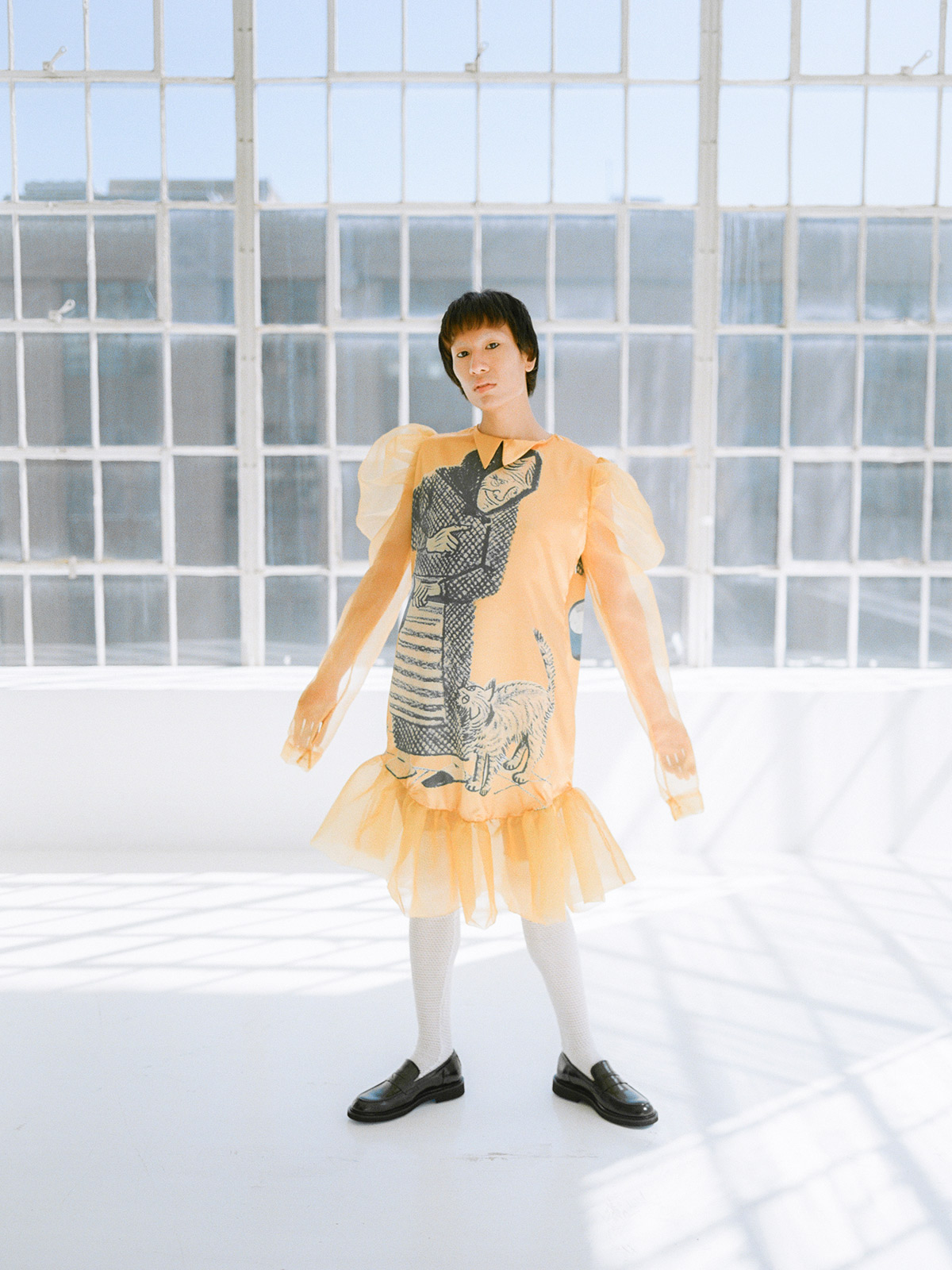James Emmerman photographs the designer's Spring 2020 collection, inspired by ancient myth and broken promises, for Document.
Since launching his eponymous brand in 2018, designer Vasilis Loizides has raised the bar for gender-fluid fashion with his fantastically considered garments. The Cyprus-born designer worked for Marc Jacobs and Nicola Formichetti while studying fashion design at Parsons, where he began developing his signature allegorical collections.
Exaggerated shoulders, tulle accents, and illustrated graphics feature in the Spring/Summer 2020 collection, interwoven with sharp-fitted separates. Loizides flirts with the boundaries between legend and reality, toggling between the contemporary politics of genderless fashion and the lore of Greek antiquity.
“Being a Greek Cypriot, I believe myths are very embedded in my knowledge and subconscious, it is one of the first things we learn growing up. This collection was actually inspired by Alfavitario—a book we were given as kids to learn how to read Greek.”
Mythic references have recurred throughout the Vasilis Loizides’s collections. For Spring/Summer 2019, Loizides took inspiration from old postcards and ancient artifacts. But in his Spring 2020 collection, Loizides takes us to a new thematic terrain. Continuing to employ aesthetic elements of ancient Mediterrean artifacts and mythic characters, the designer honed in on the consequences of history and mythology on the individual psyche—channeling nostalgia, education, and gender expectations into an unlikely harmony.
“The whole collection explores the idea of education and our relationship with it. The way we acquire values and beliefs was really fascinating to me. As kids we are being bombarded by all these grandiose ideals and concepts of morality,” he said. “I wanted to create a collection that has a nostalgic essence of a sweet promise that never came to fulfillment.”
The collection longs for a time in which gendered expectations haven’t yet been internalized—a youthful, mythical place where gender hardly factors in the equation.
“Personally I just design what I find interesting and disregard notions of what attire should look like. I try to not pay attention to that at all,” he said. “One of the things I enjoy in mythology and history is that occasionally the idea of gender is not as prominent. I always admired powerful women and goddesses or the fluidity [of] certain eras.”


















